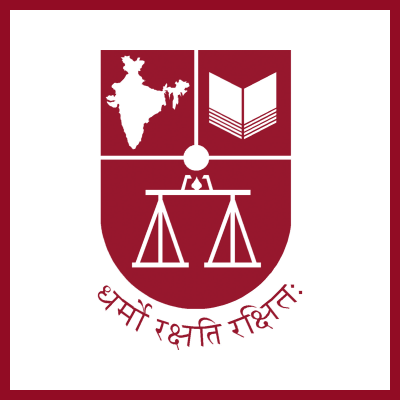Postgraduate Diploma inIntellectual Property Rights Law(PGDIPRL)
Overview
The PGDIPRL programme, being offered since 2000, provides a comprehensive introduction to intellectual property laws. It uses a hybrid pedagogical approach that combines the best of live interactive sessions with faculty members and resource materials that can be accessed at any time and from anywhere. The faculty in the programme consists of prominent academic scholars as well as industry professionals with extensive experiences in the area.
As a foundation course, the course introduces the candidates to legal and economic foundations of the various types of intellectual property rights such as copyright, patents, trademarks, geographical indications and trade secrets. No prior knowledge in the area of law is required for this course, and the course particularly welcomes students from non-law backgrounds.
Programme Highlights:
- Understand the legal dimensions of different types of intellectual property rights such as copyright, patents, trademarks, geographical indications, designs, and trade secrets;
- Understand the economic and practical dimensions of different types of intellectual property rights;
- Live interactive sessions with prominent faculty from academia and industry;
- Cutting edge syllabi that covers not just the foundations of intellectual property rights, but also contemporary issues in the area;
- Employs NLSIU’s pioneering hybrid learning format, with materials specially crafted for online learning.
Courses
Course 1: Introduction to Law & Legal Systems
This paper introduces the student to legal thinking and reasoning, and to legal systems, with a particular focus on Indian law and the Indian legal system. Those students who are from a non-law background would find this course particularly helpful.
Course 2: Law of Patents, PPVFR and Trade Secrets
This course consists of the following modules:
Module I: Introduction
Module II: Patent Applications
Module III: Patentable Subject Matter
Module IV: Disclosure Requirements
Module V: Novelty
Module VI: Inventive Step
Module VII: Utility/Industrial Application
Module VIII:Oppositions and revocations
Module IX: Infringement, Exceptions to infringement, and Remedies for infringement
Module X: Patents and Public Health
Module XI: Protection of Plant Varieties and Farmers Rights
Module XII: Trade Secrets
Course 3: Introduction to IP, Copyright and Designs
This course consists of the following modules:
Module I:
- Introduction to intellectual property rights
- Types of intellectual property rights
- Overlapping intellectual property rights
- Theoretical justifications for intellectual property rights
Module II
- Introduction to copyright
- Historical origins of copyright
- International copyright framework
Module III
- Originality
- Idea-Expression dichotomy
- Fixation
Module IV
- Subject matter of copyright
Module V
- Authorship
- Ownership
- Role of Copyright Societies
Module VI
- Economic Rights
- Non-economic Rights
- Infringement of rights
- Secondary Liability
Module VII
- Limitations and exceptions
- Exceptions to infringement under Indian copyright law
- Fair dealing exception under Indian copyright law – Sec. 52(1)(a)
- Enumerated exceptions under Indian copyright law
- Compulsory Licensing under Indian copyright law
- Statutory Licensing under Indian copyright law
Module VIII
- Introduction to designs
- Subject matter of protection
- Design v. Copyright v. Trademarks
- Infringement of designs
Module IX
- Remedies
- Civil Remedies
- Criminal Remedies
- Administrative Remedies
Course 4: Law of Trademarks and Geographical Indications
This course consists of the following modules:
Module I: Principles of Trademark
Module II: Procedure for Obtaining Registration of Trademark
Module III: Rights of the Owner of Trademarks
Module IV: Infringement of Trademark and Action for Passing Off
Module V: Domain Name Protection
Module VI: Protection of Geographical Indication
Faculty

Dr. Sulok S
Assistant Professor of Law

Pankhuri Agarwal
Visiting Faculty

Mathews George
Visiting Faculty
Fee
For Indian Nationals
| Regular Fees | |
| Application Fee | Rs. 2,000 |
| Admission Fee | Rs. 3,000 |
| Course Fee | Rs. 48,800 |
| Examination Fee | Rs. 3,200 |
| Total fees | Rs. 57,000 |
| Other fees | |
| Admission late fee | Rs. 500 |
| Continuation fee | Rs. 3,500 per year |
| Extension fee | Rs. 6,000 per year |
| Re-evaluation fees | Rs. 900 per paper |
For Foreign Nationals
| Regular fees | |
| Application Fee | Rs. 2,000 |
| Admission Fee | Rs. 3,000 |
| Course Fee | Rs. 1,44,800 |
| Examination Fee | Rs. 3,200 |
| Total fees | Rs. 1,53,000 |
Apply
Please note the following information regarding eligibility and the mode of applying for this programme.
Eligibility
The minimum eligibility for applying for this programme is a graduate degree (in law or other fields) from a recognized university.
Students with a degree certificate or its equivalent from any UGC-recognized university, Association of Indian Universities, CA, CS, ICWA, Open University/distance learning can apply. There shall be no restriction as to age, nationality, gender or employment status.
Important Dates
Admission Closed.
Classes are slated to begin by September 2025..
For admission-related queries, please write to admissions.pace@nls.ac.in
FAQs
These are some commonly asked questions about this programme. For general questions about the NLSIU Distance Progamme, please visit the General FAQs page.
How many years does a student have to complete a programme?
Students of the Diploma programmes can complete their programme in up to five years from the year of their enrolment.
Students are required to pay the prescribed fee at the time of admission. If a student has to continue the programme beyond one academic year because of non-fulfilment of the prescribed requirements for the award of the diploma, they will be permitted to continue for the subsequent two academic years by paying a continuation fee as prescribed for each year.
After a period of 3 years if the student is unable to clear the programme they may be given an extension of another 2 years by paying Rs. 6,000/- per year for the subsequent two years as extension fee, provided they have cleared 2 out of the 4 courses in a Diploma programme. At the end of the fifth academic year, if the student is unable to complete the requirements for the award of the diploma, the admission stands automatically cancelled.
What if the candidate does not complete the course in 3 years?
If the candidate does not pass or complete the course, his enrollment ceases. He will have to register afresh by following the usual procedures prescribed for first admission. His performance at the earlier exams is not carried forward. He will have to redo the entire academic exercise prescribed, in the syllabus.
What is the scheme of Assessment?
Every course shall have a combination of formative and summative assessments. This will aid in regular learning and understanding concepts better. Please note the following details regarding the upcoming assessments: Assessment Details:
| Sl. No | Assessment Type | Assessment Pattern | Marks Allotment | Mode | Enrollment Fee |
| 1. | Formative I | MCQs | 20 Marks | Online | INR. 200/- |
| 2. | Formative II | MCQs | 30 Marks | Online | INR. 200/- |
| 3. | Summative | Subjective | 50 Marks | In-person | INR. 300/- |
What is Grading Mechanism?
To successfully complete a programme, a student must take all three assessments (Formative I + Formative II + Summative) and obtain a cumulative grade point average (CGPA) of three and above out of seven. An aggregate of your performance will count towards the final grade in each course.
| Grade | Grade Description | Grade Point | Percentage of Marks |
| O | Meets the highest standards for the assignment or course | 7 | 70% and above |
| A+ | Meets very high standards for the assignment or course | 6 | 65% to 69.99% |
| A | Meets high standards for the assignment or course | 5 | 60% to 64.99% |
| B+ | Meets most of standards for the assignment or course | 4 | 55% to 59.99% |
| B | Meets basic standards for the assignment or course | 3 | 50% to 54.99% |
| C+ | While acceptable, falls short of meeting basic standards in several ways | 2 | 45% to 49.99% |
| C | Lowest passing grade | 1 | 40% to 44.99% |
| F | Failing, very poor performance | 0 | Below 40% |

Admission Status
CLOSED
Duration
1 Year
Number of Courses
4
Course Fee (Indian Nationals)
Rs. 57,000/-
Course Fee (Foreign Nationals)
Rs.1,53,000/-
